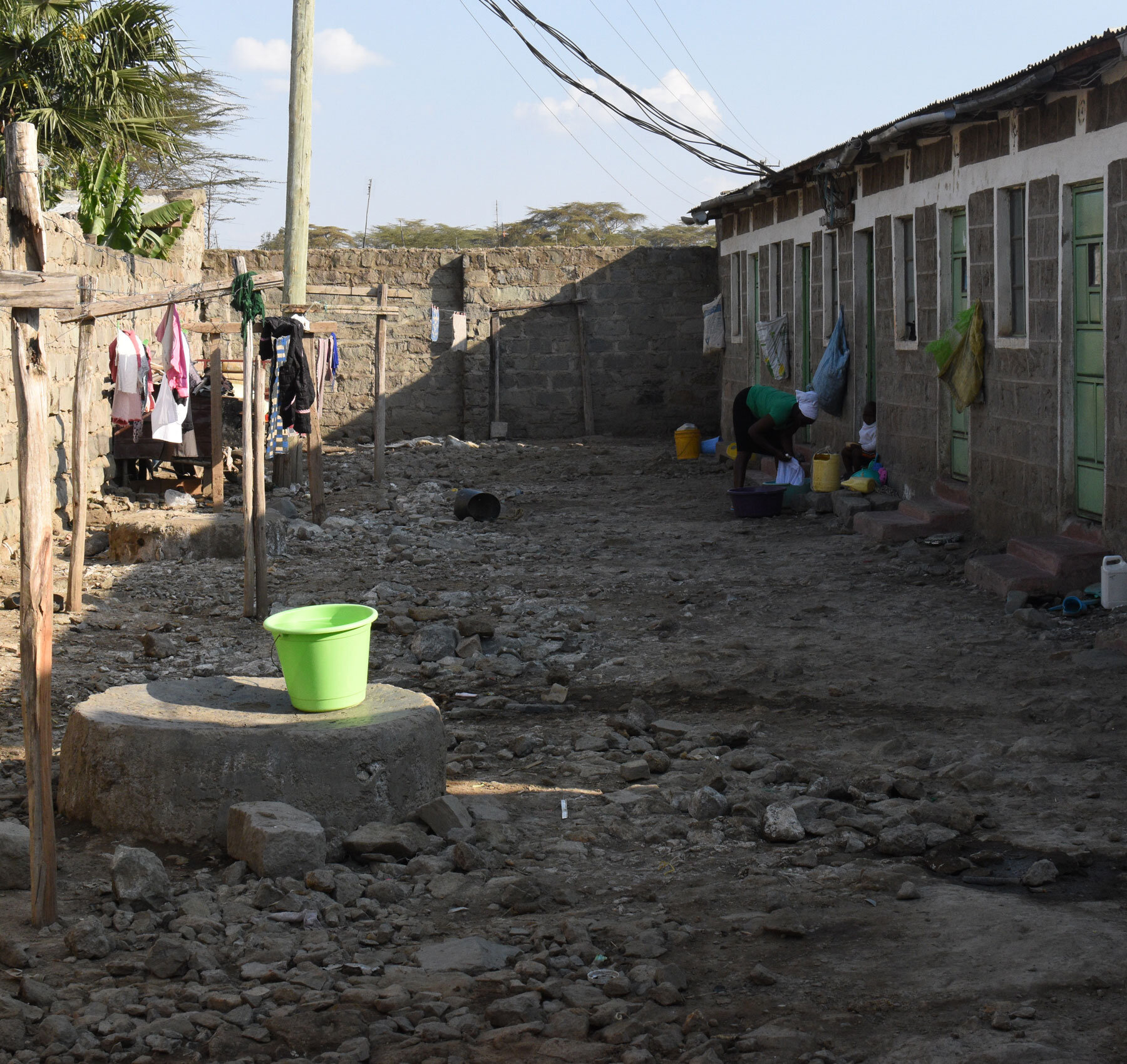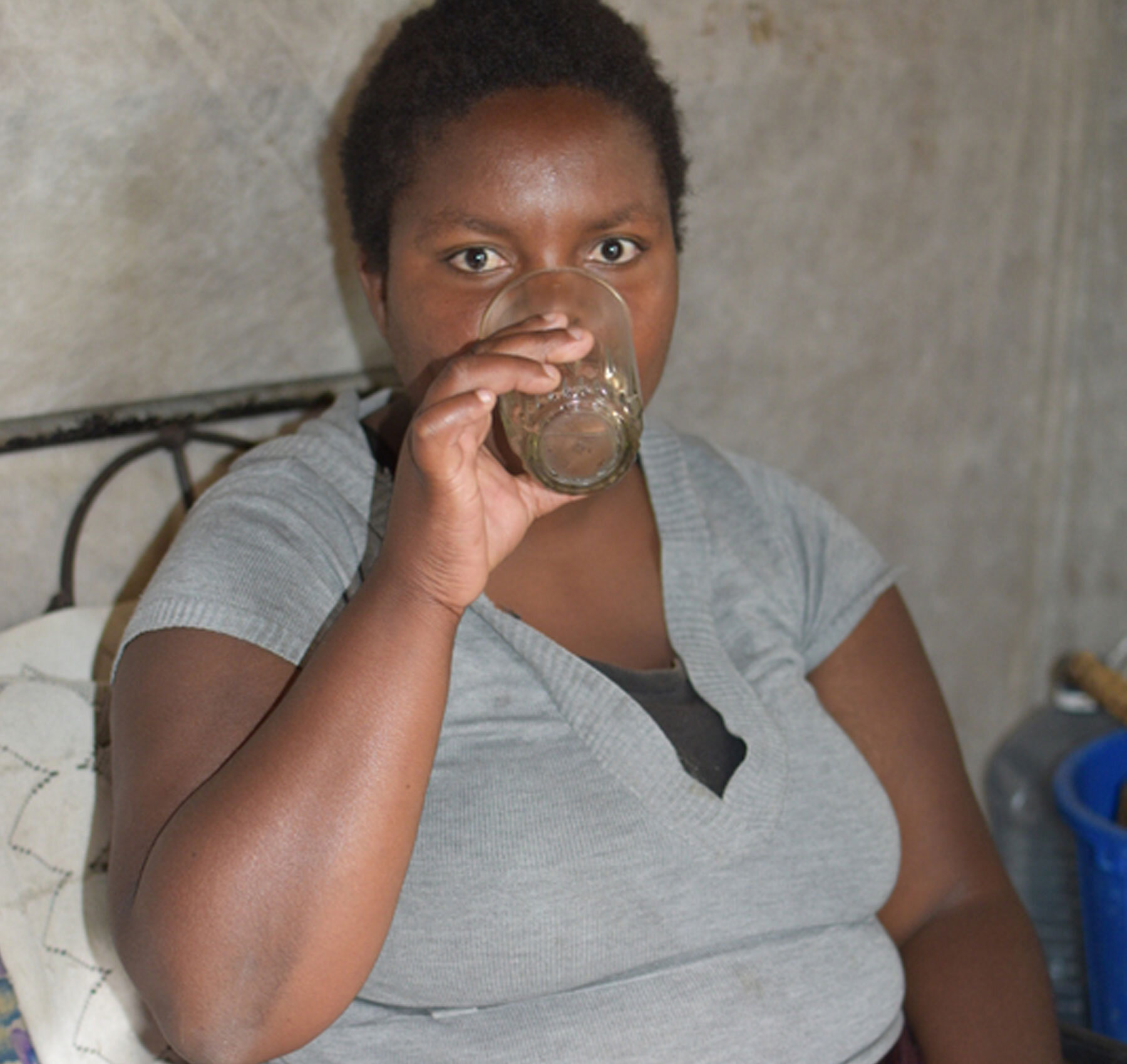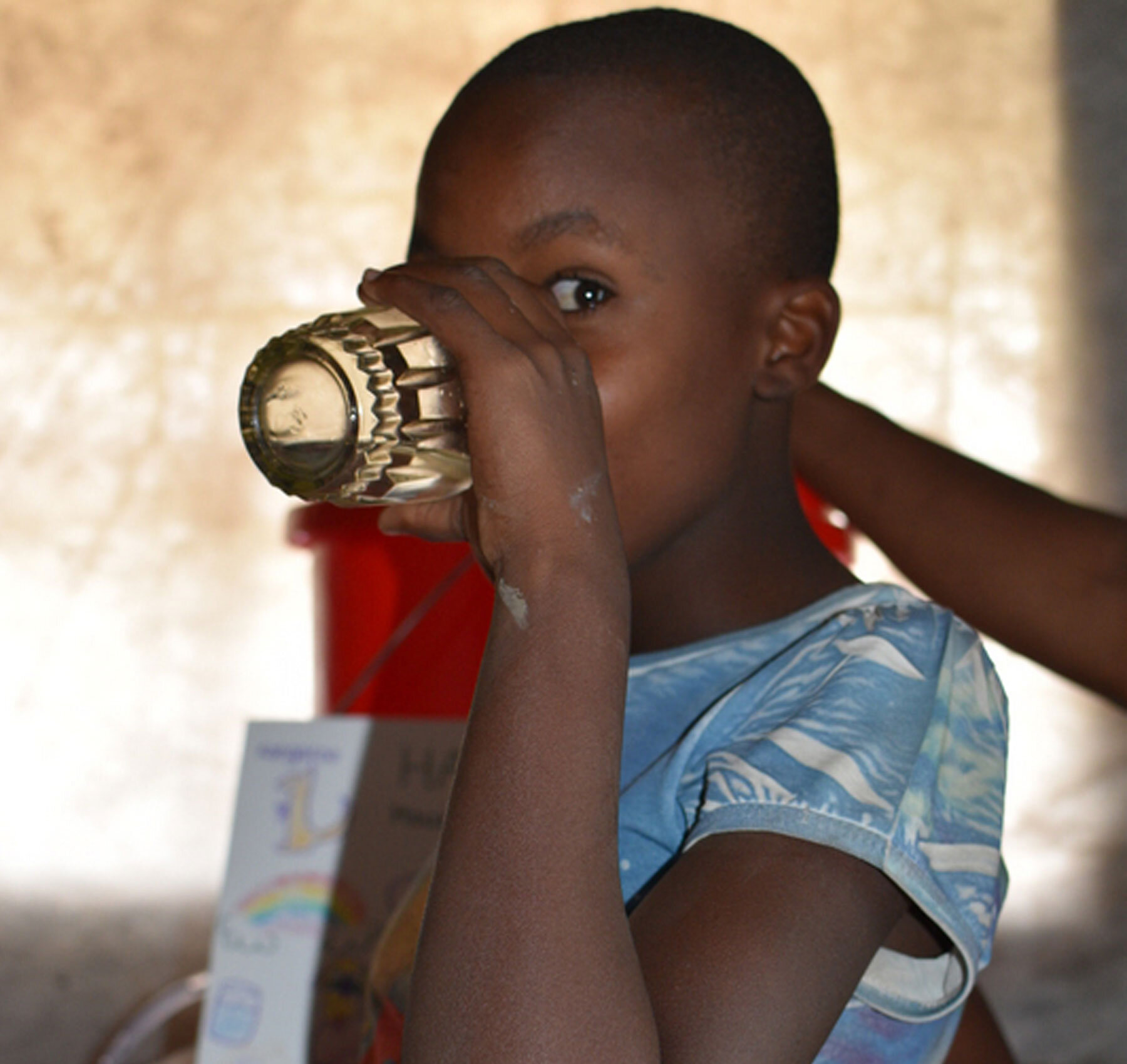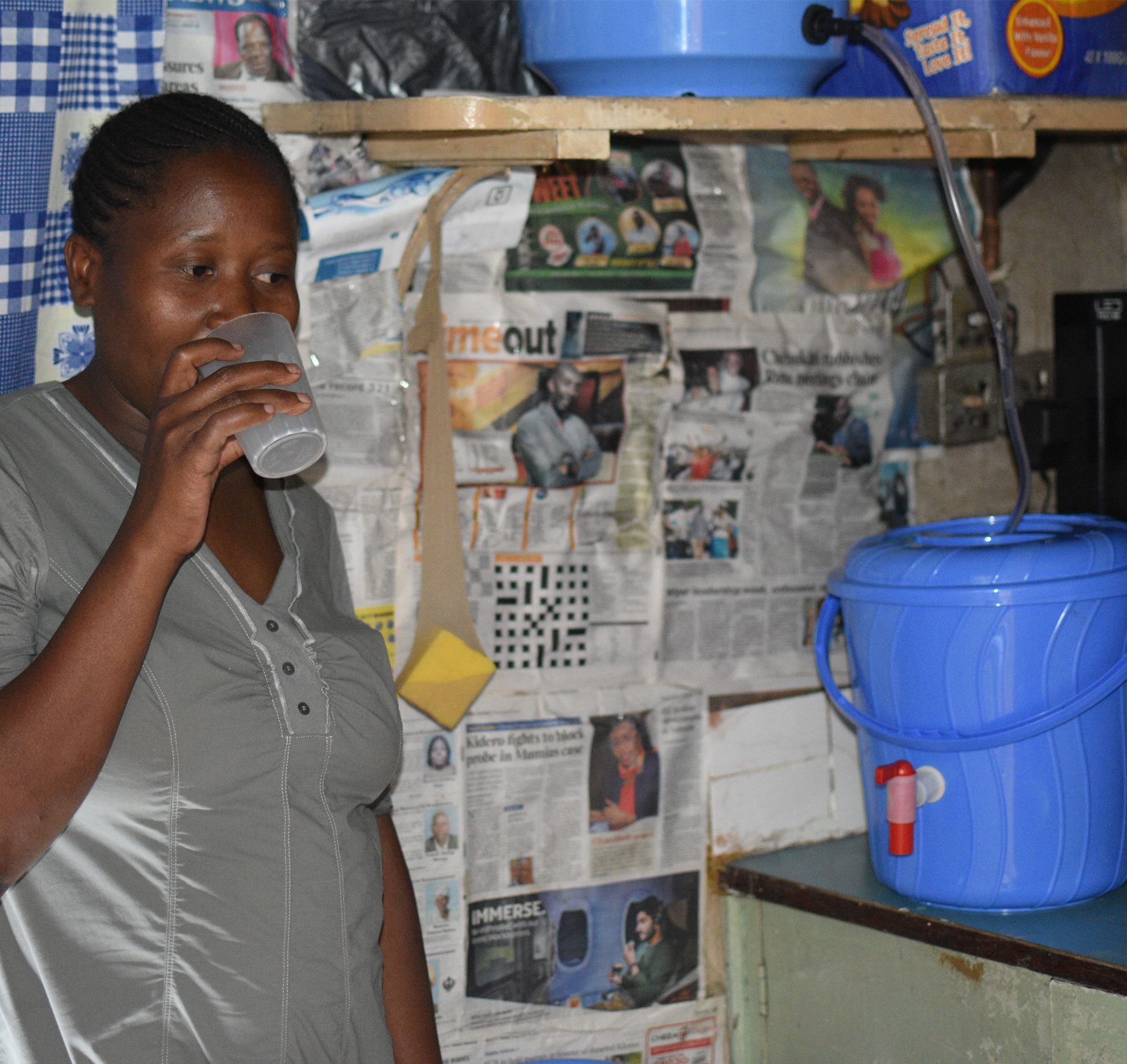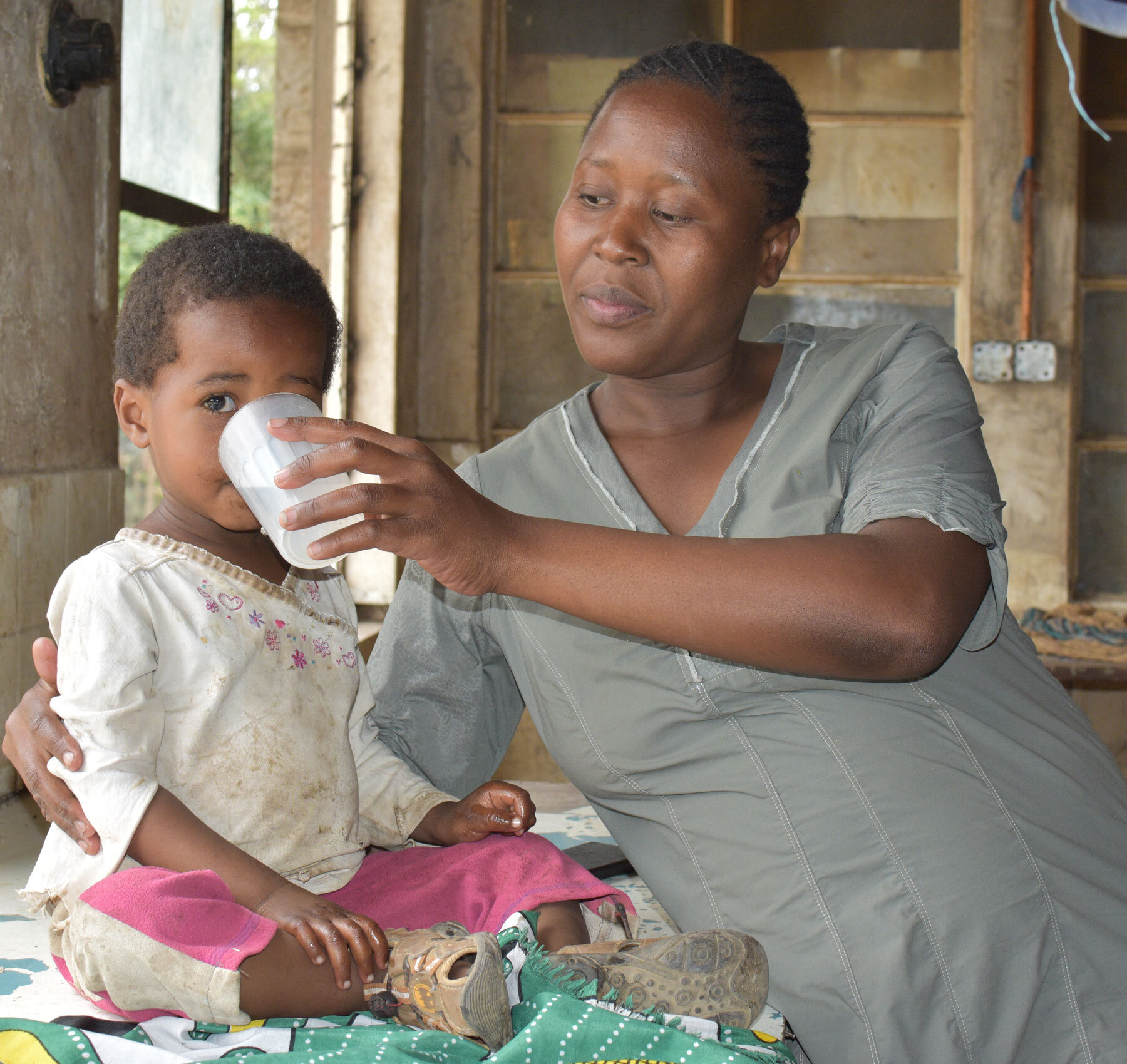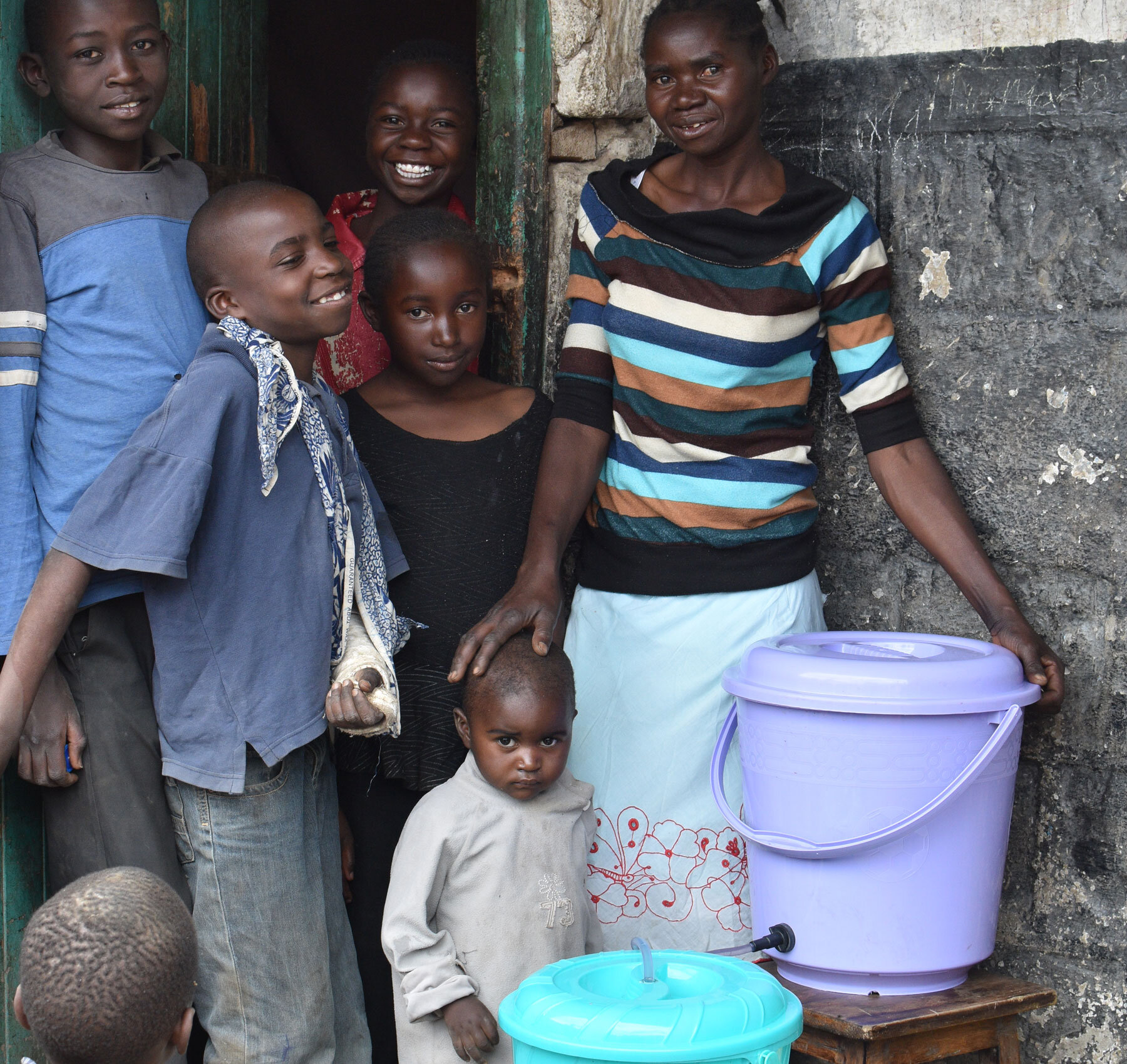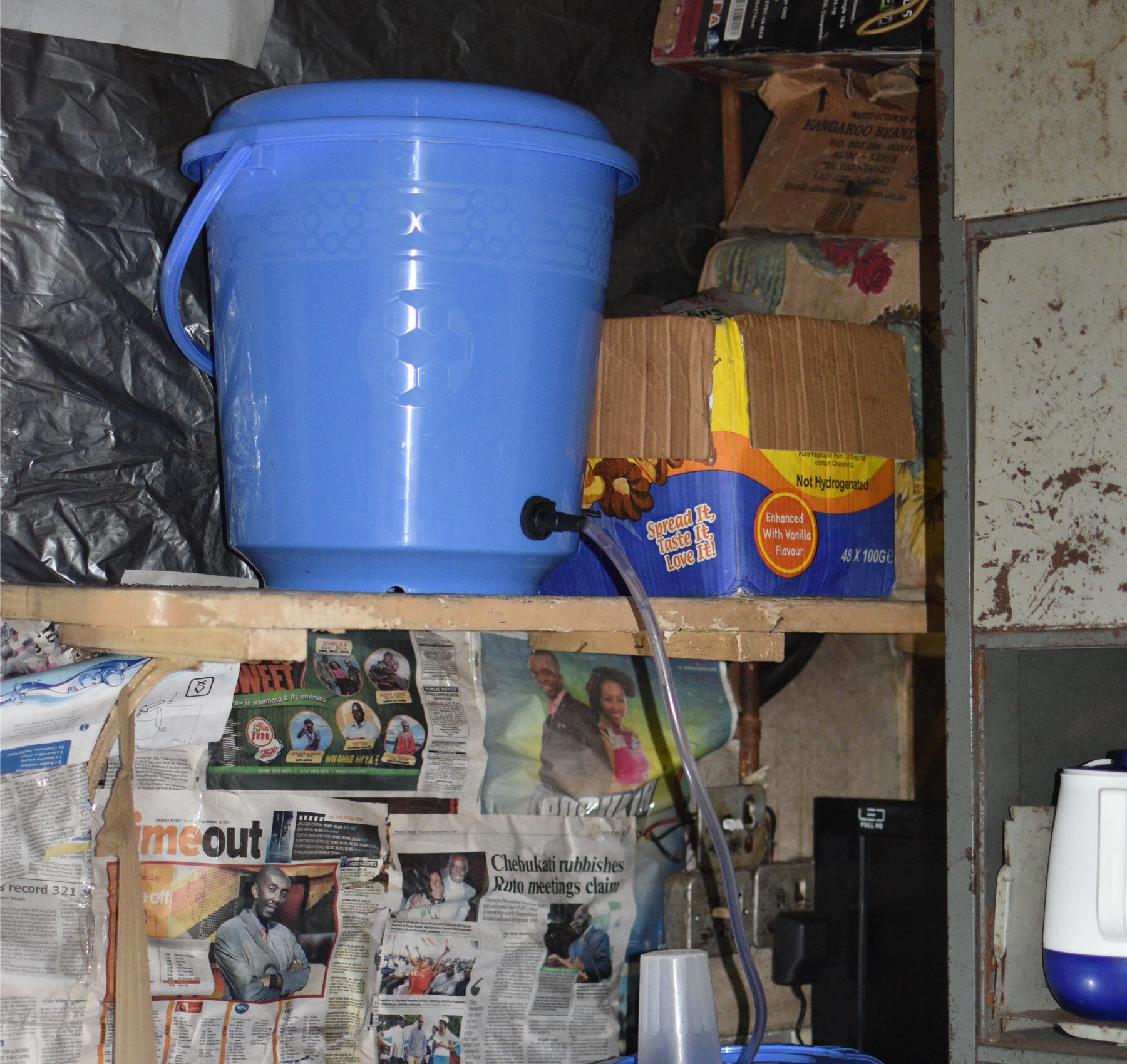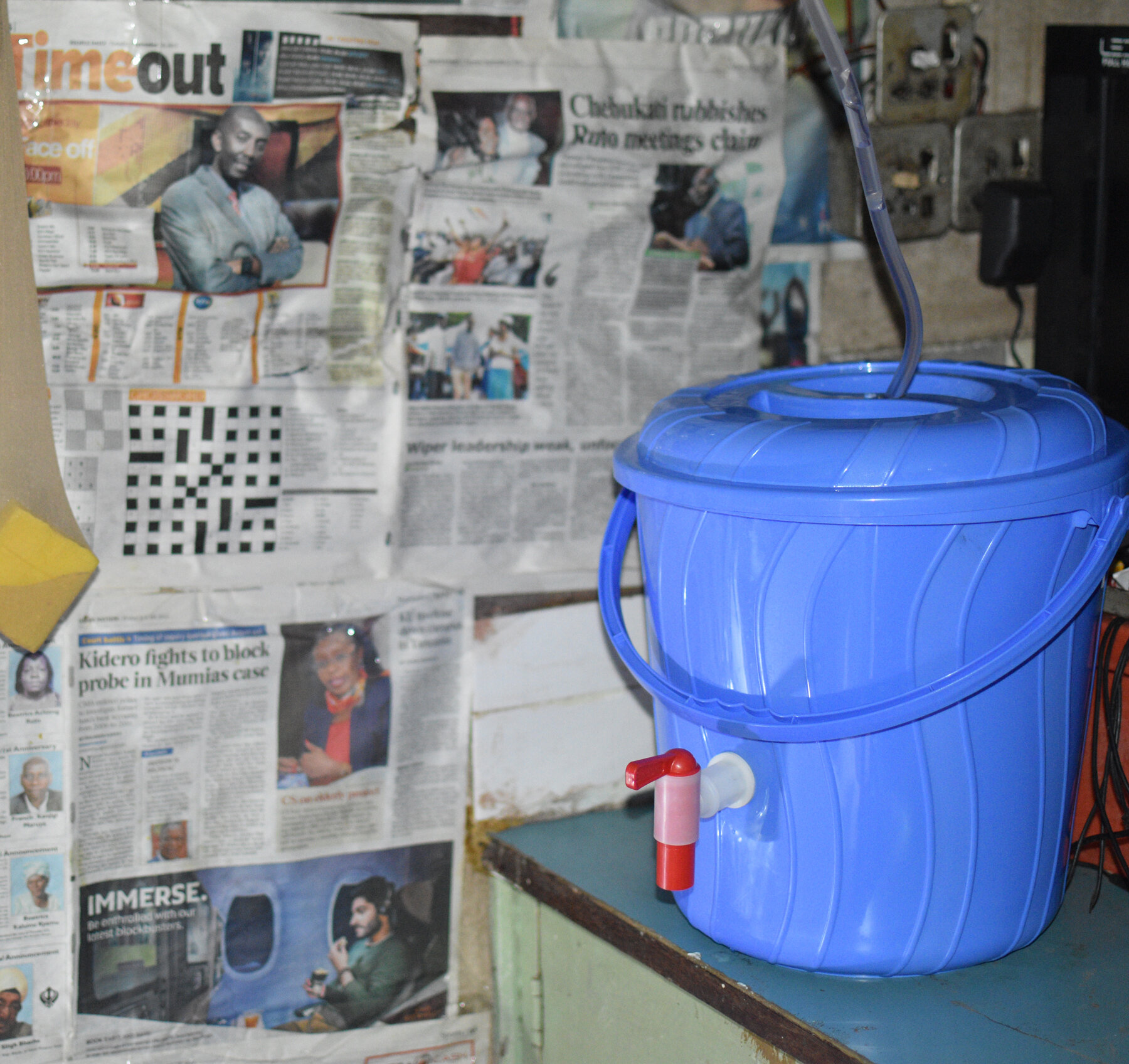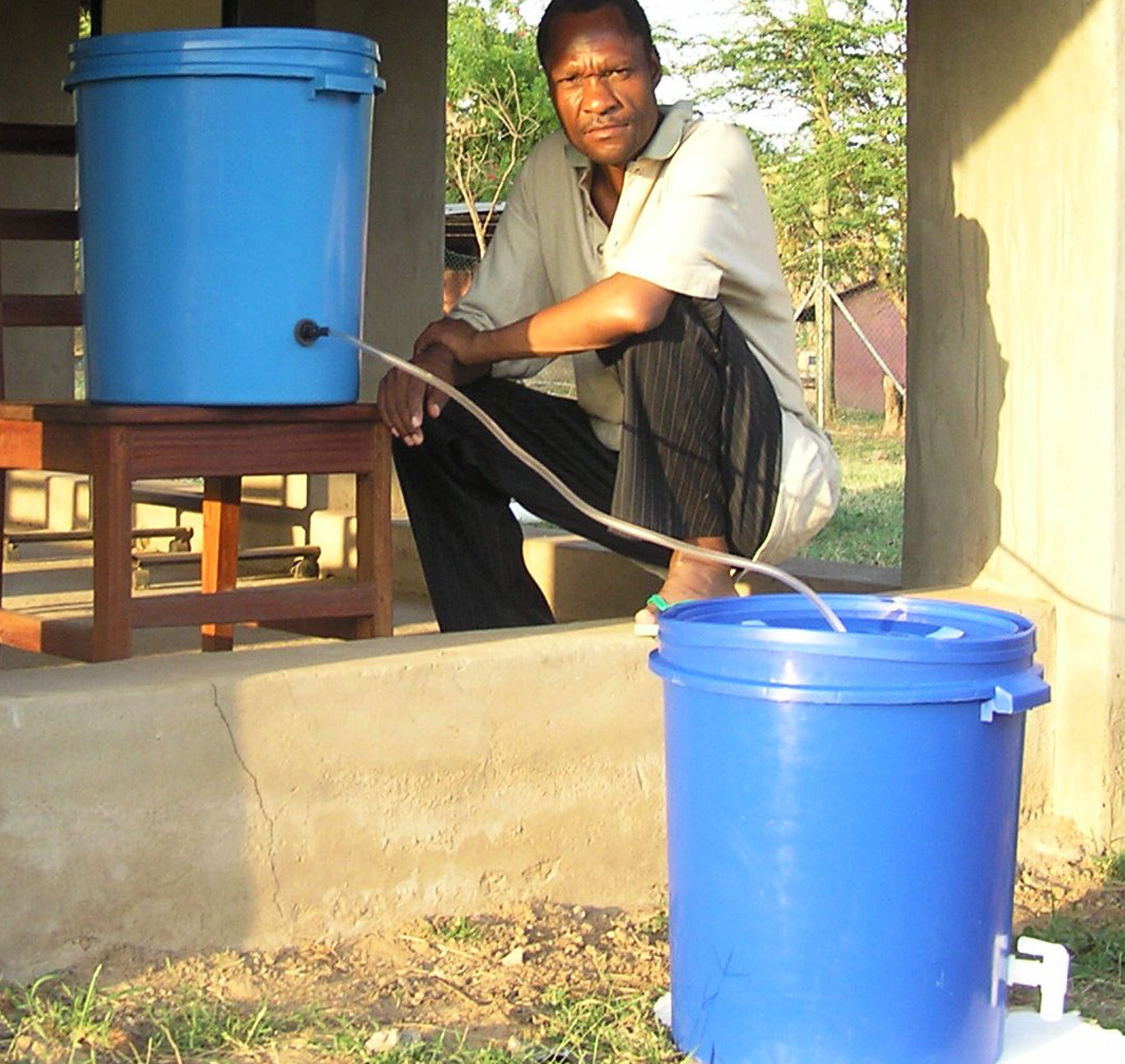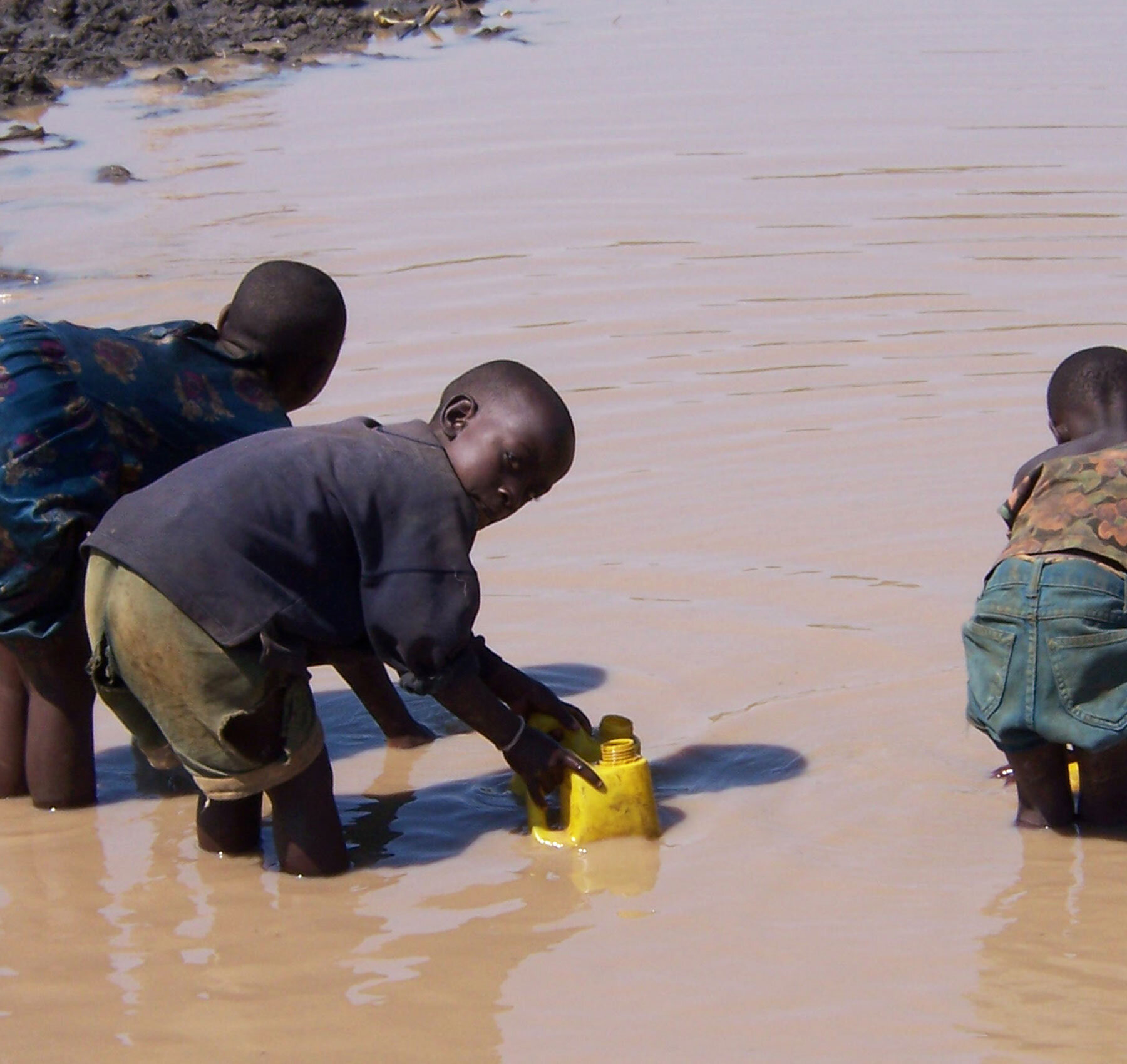Clean Water and Hygiene Program
1 in 3 people globally do not have access
to safe drinking water – UNICEF, WHO.
Diarrhoeal diseases kill almost 2,200 children every day, more than AIDS, malaria and measles combined. The World Health Organisation reports that, globally, in excess of 2 billion people use a drinking water source contaminated with faeces (read more). In developing nations, health risks are exacerbated by unimproved sanitation and poor hygiene practices.
The Kihoto slum suburb in Naivasha is no exception. Each visit, I hear of a child or parent who has succumbed to cholera, typhoid or dysentery. For every family I speak with, diarrhoea is commonplace. Medical treatment is often unaffordable. Open drains, absence of sewage removal, animals and humans defecating openly, poorly built latrine pits that overflow in heavy rains. Add to this the absence of preventative hygiene such as hand-washing, and disease carrying germs transmit swiftly. For the bulk of inhabitants, water in Naivasha comes from town bores. It is high in salt and fluoride with up to 10mg/L fluoride (seawater contains 1.3mg/L F). It turns teeth brown, makes bones brittle and is increasingly being linked to a negative impact on IQ. The option is to purchase drinking water. It is recognised that many in Kihoto spend more money on clean water than they spend on food.
SOSK explored the feasibility of providing water filtration systems and sanitation education to the residents of the Kihoto slums. Along with donations and a grant received by the Presbyterian Womens Missionary Union, which is supported by Presbyterian Church of Victoria, SOSK purchased 24 clean water filters from Cleanwater Kits . These simple but effective kits provide clean fresh water from any fresh water source within minutes at a rate of up to 5 litres per hour. To initiate the project, I travelled to Naivasha with kits, a donated laptop and projector, masses posters, UV germ torches and notes for the 2 hour workshop. Working with Pastor Michael’s wife Agnes and the Women’s Ministry Team from the Church on the River we identify the most needy of the slum families. I then meet each family in their home and spent time getting to know them as well as assessing hygiene needs and what information will be most valuable to include in the workshop. It provides me an amazing insight into their lives and at just how many ways there are to be human.
Most of the families live in compounds with shared facilities. Each has one tiny room costing about $25/month. The shared facilities are not enviable. Any space available near the toilet and bathroom block is used to defecate. The flies and the stench in the heat make it unbearable. To exacerbate disease transmission, chickens and dogs roam freely in and out of the compound and open rooms. No wonder cholera and typhoid take hold.
Once I have met all the women, we meet together for the workshop. Held in the Church on the River, the 2 hour session focuses on educating them on the water-borne
diseases that exist in and around the slums. They learn about germs, how they are transmitted and how to prevent transmission. The final 20 minutes is devoted to the water filter; assembly, operation and maintenance. The workshop is very much hands-on. Lots of videos and animations, quizzes, puzzles and practical activities.
In the days following the workshop, I try to re-visit the families to see the water filter in action and to assess the amount of information that was absorbed. This is always incredibly powerful, with filter’s perfectly assembled, water being shared amongst several families, hand-washing stations set up and younger children taught to help toddlers in the skill of the correct use of soap and water. This serves to remind me not to underestimate the Kenyan women. They may not have had the luxury of attending school or learning to read and write. Yet give them the opportunity to improve the health and future of their community and they will do everything in their power to make the most of what is given to them.
Take Beatrice, for example, mother of 5, her husband was shot in front of her and her children in 2018. Something to do with a fishing permit! Uneducated, Beatrice takes casual work washing clothes and helping in a local farm. The income barely covers the rent for her tiny room. Beatrice attended the workshop and was extremely quiet. I was unsure of her understanding of any of the information provided. Yet when I re-visited her I was totally gob-smacked. The filter was set up so that all in her compound could access the water. She had made a hand-washing tap from a plastic container, equipped with soap and located so that older, taller children could show toddlers how to use it correctly. She absolutely understood the importance of hand-washing as the most important factor in eliminating contamination in a domestic environment.
The response to the project has been incredibly positive. Women report that the incidence of diarrhoea has dramatically reduced and children are noticeably more energetic and healthy. The women have asked me to repeat the workshop for them and to make it longer! Word travels fast in the slums and the men in the congregation of the Church on the River were apparently perturbed that they were not involved in this information sharing workshop. A presentation to the congregation at Sunday worship addressed this issue.
Many more families have expressed an interest in the clean water project.
I need to source more filters and gather more educational resources for the workshops. Any donation will be gratefully received. The fundamental step of providing clean water has far ranging benefits for the inhabitants of Naivasha. Please donate to this project.



